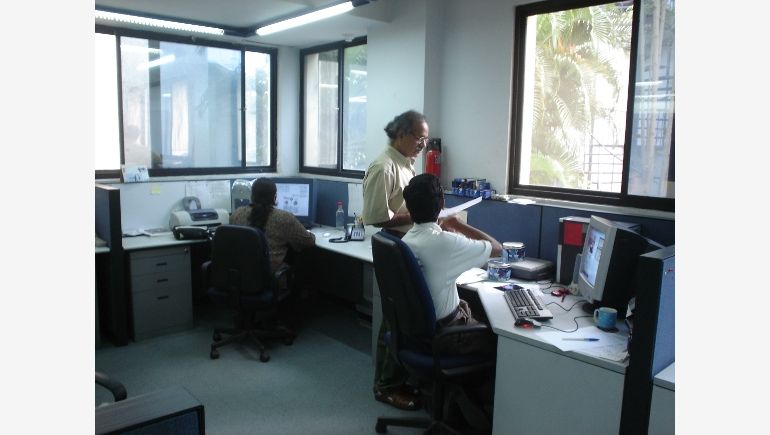Kraków Business Park in Zabierzów was the place where The Functional Office 2011 Seminar took place. Lecutres had been intended for architects as well as building administrators. The seminar was organized by „Office&Facylity” magazine, media patronage was assumed, among others, by our: biweekly magazine “Krakowski Rynek Nieruchomości” and portal www.e-biurowce.pl . The meeting had been planned in a way which combined both exhibition and lecture parts. Attendance exceeded organisers' expectations, about 300 people appeared there. It has proved a huge interest of Cracovian society in these issues. Among the guests were students of architecture, architects, office administrators, agents, people involved in the sale and rental of office buildings and representatives of the companies offering furnishings and accessories.
Efficiency, effectiveness, and expression
The seminar was started with a lecture given by Dorota Blaschke, Director of Administration at BNP Paribas Fortis, on the following topic “3E: Efficiency, Effectiveness, Expression”, about efficiency, effectiveness, and expression in practice on the example of Cracovian headquarters of the bank. Blaschke presented the advantages of open space and pointed to the importance of the application of transparency in the office. She also devoted much attention to the proper use of meeting rooms, thanks to which a company can save about 50 percent of travel expenses, such as through the use of videoconferencing and other technological solutions.
The topic of efficiency, effectiveness, and expression in the office was extensively discussed by a special guest of the seminar - Tim Allen, Director for Europe, Middle East, and Africa at Johnson Controls. During his speech, he gave some examples of companies investing in people and creating friendly workplaces for them. Allen gave many valuable hints, which should be considered when arranging offices. For example, despite the global standards for space arrangement, he suggested to leave about 20 percent for local character in order to make employees feel comfortable in their workplace.
What will be the office of the future?
That part of the seminar was led by Romuald Loegler, one of the most famous architects not only in Poland, but also in the world. He gave a lecture about the offices of the future. He spoke, among others, about: the synergy of apartments, offices, and shops in one place. Loegler devoted a great deal of attention to the European Union’s studies, which show that harmfulness of large objects’ surroundings eliminates about 20 percent people from their professional life. He also raised the subject of the negative impact of confined space on work efficiency. He provides the example of a company from the IT industry, which told its programmers to work in box rooms or closets; after some time the employees demanded for windows in the rooms and open door.
Office space
Małgorzata Sularczyk, corporate administrative services manager in UPS bank, based her presentation on the bank’s case study. As a specialist in office space planning indicated that when in comes to open space, particular attention should be paid to the optimal planning of workplaces. According to Sularczyk, relationships with the aim of understanding the needs of a company and employees are of a vital importance when arranging rooms. In the bank where she works, solutions proposed by the employees are tested in one department. If they turn out to be correct, this pattern will be replicated in other offices.
The presentation contained various solutions to arrange office space for “quiet” work, and places for quick and informal meetings of the employees. Cultural differences, which influence the planning of office space, were provided as an example. These differences arise from the habits of various nationalities. When it comes to lighting control, the solution used by one of the offices in London was discussed. In order to reduce building maintenance costs, the company installed motion detectors which make the light turn on or off. In Poland, in turn, detectors would create higher costs for a bank, as Polish are accustomed to the fact that the last person leaving the room turns off the light.
Moderated thematic forums
The novelty introduced into the program of the seminar were moderated thematic forums with the industry representatives, led by Bogusz Parzyszek, Editor-in-Chief of “Office&Facility”. For instance, the users of one of the forums tried to answer the following question: what should be taken into consideration by a company buying new armchairs.
The Functional Office 2011 Seminar was also an ideal occasion to expand business contacts and meet people from the industry. The next meeting will take place on 29th March in Poznań, in Skalar Office Center. David Dropkin will be a special guest.
